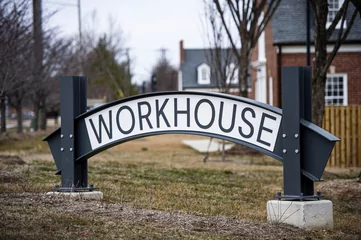Working as a criminal defense attorney in Fairfax County, I regularly appeared before substitute judges Michael Cantrell, Mitchell Mutnick, and Richard “Butch” Horan while they were on the bench.
What I saw in their courtrooms raised questions, and I embarked on a journey to hold these judges accountable for their disturbing courtroom antics. My experience reveals our challenges in Virginia, ensuring our judges engage in best practices in the courthouse. One of the judges, Horan, had actually been forced to retire in 2004 but returned as a substitute judge, presiding in criminal court for an additional 15 years. In early 2022, the other two had to retire due to improper, abusive, and untoward behavior, but they were also allowed to serve as substitute judges.
In August 2022, I wrote an op-ed for Virginia Lawyers Weekly headlined, “It’s time to get ‘wayward judges’ off courtroom benches.” What I learned was that even after holding these judges accountable, there are still stealth ways that they maintain their status in our legal communities, even going so far as one legislative effort earlier this year that attempted to “commend” one of these judges.
I was motivated to write my op-ed because I had witnessed Judge Horan mistreat a young woman, Amanda, in courtroom 1A of the Fairfax County General District Court. She had survived a traumatic upbringing, having been repeatedly raped by her foster father as a toddler. She continued to face unimaginable abuse until she finally ran away. Sadly, once free from her foster father, she married an abusive man whom she later divorced. At the time of her interaction with Judge Horan, she was struggling as a young single mother of two children. She stood before Judge Horan and explained to him gently that she couldn’t afford a lawyer because she had lost her job in the first months of the pandemic. Demonstrating a disturbing lack of professionalism, Judge Horan refused to appoint her a lawyer—denying the young woman her constitutional right—and proceeded to mock her.
“I am so sick and tired of people like you always requesting an attorney,” he told her, continuing, “I see ‘Help Wanted’ signs everywhere.” Judge Horan gave her a two-month extension to find a job, warning that she also had to hunt for a lawyer she would have to afford to pay.
In the courtroom, I watched, stunned. As a practicing criminal attorney, I had unfortunately seen this kind of judicial disrespect and miscarriage of justice. Immediately, I sent an email expressing my concerns to Chief Judge Lisa Mayne, who oversees judges in the General District Court. Later, I found and contacted Amanda, represented her pro bono, and secured her dismissal.
Judges who steer off track are called “wayward judges.” There isn’t a lot of documentation about them being held accountable for their behavior, but there is some. In 2008, the National Law Journal published a piece, “Little public airing of abusive judges,” noting that the 5th U.S. Circuit of Appeals hired two psychiatrists to observe a federal judge who “terrorized lawyers.” In 2021, the ABA Journal reported that the Arkansas Supreme Court suspended a judge and ordered him to hire a counselor or life coach for “rude and intimidating treatment of public defenders in the courtroom.” Then, last year, a state court judge in West Virginia “whipped out his handgun, waved it in the air and left it on the bench with the barrel pointing directly at the corporate lawyers who had irritated him,” according to Yahoo.
Just as how an article by Washington Post reporter Chris L. Jenkins led to Judge Horan’s retirement, it is often only public scrutiny that brings about accountability.
This series of op-eds intends to do just that: highlight the misconduct and deplorable courtroom behavior within our judiciary system so you, law-abiding citizens, can “judge for yourselves” and hold these privileged few accountable for their actions.
This is part 2 of a 4-part series. The first op-ed ran Aug. 2.
Andaleeb “Andi” Geloo is a first-generation immigrant Muslim, lawyer, and author of “Andi’s Law,” which expanded the rights of citizens seeking protection from defamation. She earned her law degree from George Washington Law School with high honors and practices law in Fairfax County. She also covers pro bono matters for underprivileged families throughout Virginia and can be reached at Andigeloolaw@gmail.com and https://fairfaxvirginialawyer.com/














(0) comments
Welcome to the discussion.
Log In
Keep it Clean. Please avoid obscene, vulgar, lewd, racist or sexually-oriented language.
PLEASE TURN OFF YOUR CAPS LOCK.
Don't Threaten. Threats of harming another person will not be tolerated.
Be Truthful. Don't knowingly lie about anyone or anything.
Be Nice. No racism, sexism or any sort of -ism that is degrading to another person.
Be Proactive. Use the 'Report' link on each comment to let us know of abusive posts.
Share with Us. We'd love to hear eyewitness accounts, the history behind an article.